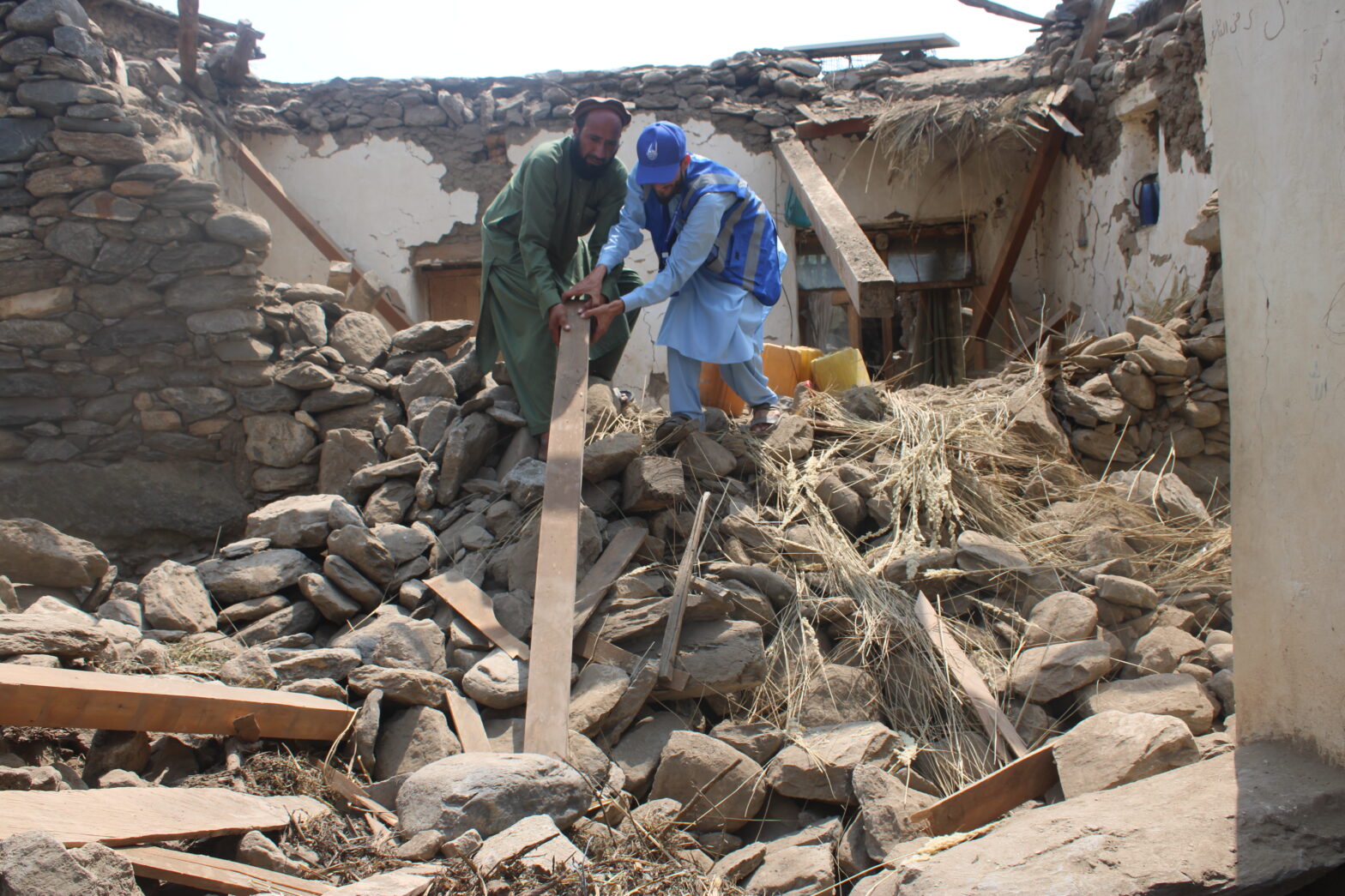
Over a month since deadly earthquakes devastated villages in eastern Afghanistan, thousands of survivors are still homeless and sleeping out in the open without proper shelter as the bitterly cold winter approaches, Islamic Relief is warning.
Latest assessments show that 90% of survivors in rural Kunar province are still without proper shelter, leaving them extremely vulnerable as temperatures plummet. Harsh winters in the mountainous region bring heavy snow and ice and temperatures as low as minus-20 degrees Celsius (-4 °F).
The deadly earthquake, which struck just before midnight on 31 August, killed more than 2,200 people and destroyed over 6,300 homes. But not enough aid has yet arrived, and the response is critically short of funds.
Earthquake survivor Wahidullah Ehsas is one of many still sleeping outside in Dewagal valley in Kunar province. He told Islamic Relief:
“My family and I are living in very difficult conditions. Since our house was damaged, we are staying outside under temporary shelters with limited food, water, and blankets. The nights are cold, aftershocks continue, and our children and elderly are suffering the most. While some households have received emergency tents, a significant number of people remain without proper shelter.
“We fear for our survival in the coming winter because, due to the continuous earthquakes, our homes are no longer safe or suitable to live in. The weather is getting colder and the nights are already chilly. In the coming months, the temperature will drop further, especially in these mountainous areas, making it very hard for families staying outside without proper shelter, blankets, or heating.”
Ibrahim Alhomadi, head of programmes at Islamic Relief Afghanistan, said:
“As winter approaches, survivors are at extreme risk of hypothermia and illness if they can’t get shelter soon. Families survived the earthquake but now risk dying from the cold winter.
“It’s appalling that thousands of people are still without proper shelter almost a month after the earthquake, but the humanitarian response is critically underfunded. Global attention fades away after a few days but the needs remain huge as these families have lost everything – their homes, relatives, livelihoods, and around 95% of them lost their food stocks. The situation for earthquake-affected families is increasingly dire. Many survivors are still living in temporary shelters, such as tents and tarpaulins, which offer minimal protection against the harsh winter conditions.
“We’ve given some families emergency tents, but this is not sustainable for winter – we need to get them into proper shelters as soon as possible.”
Three quarters of the way through the year, the 2025 UN-led Humanitarian Needs and Response Plan for Afghanistan is still less than 30% funded, and the UN has appealed for an additional $139 million to support earthquake survivors.
Immediately after the earthquake Islamic Relief deployed an emergency health team and ambulance to help survivors. The charity has also distributed more than 200 tents, 950 hygiene kits, and installed latrines
Notes
*The data was collected by OCHA as part of an interagency needs assessment.



